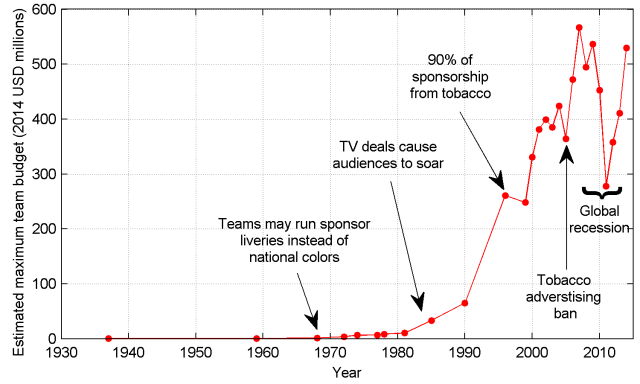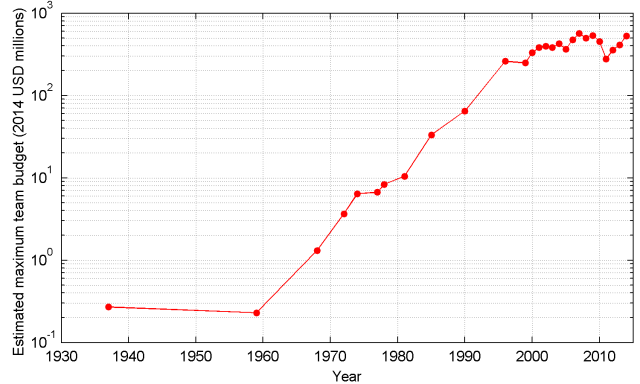TR
Points Scorer
Bumping an old topic, as the intentions of F1's new owners Liberty Media have made it relevant again.
One potential issue I have with a potential budget cap is that it significantly increases the risk of lopsided season results. A budget cap will mean that if one team "gets it right" over the winterbreak and ends up with a significant advantage over the competition, the other (big) teams will not have the budget room to do the necessary extra development to make a u-turn on their design and catch up. This is similar to the way the token system helped Mercedes keep their advantage over the past three years.
On this grounds alone I think a budget cap would be a terrible idea for F1.
One potential issue I have with a potential budget cap is that it significantly increases the risk of lopsided season results. A budget cap will mean that if one team "gets it right" over the winterbreak and ends up with a significant advantage over the competition, the other (big) teams will not have the budget room to do the necessary extra development to make a u-turn on their design and catch up. This is similar to the way the token system helped Mercedes keep their advantage over the past three years.
On this grounds alone I think a budget cap would be a terrible idea for F1.
 Might be a widespread case of better-the-devil-you-know syndrome...
Might be a widespread case of better-the-devil-you-know syndrome...
